|
Level-headed. Self-reliant. Optimistic. These are the three words that aptly describe Aiman Firhad. Within the faculty and the university, the Ampang native is warmly known as Aiman. Gleaming with an allegiant passion for institutional reform, Aiman solemnly believes in youth involvement as a catalyst for change within the administration. His love for the art of persuasion, which stemmed from his schooling days, has made him more critical and analytical in his approaches. This, in turn, boosted his confidence when communicating with others. His proficiency is further substantiated by his election as the Secretary of Strategic Planning under the Universiti Malaya Students’ Union (‘UMSU’) 2020 as well as the President of the College Action Committee for the Tun Ahmad Zaidi Residential College 2018/2019. Aiman has also established himself as a prominent leader within the university, thanks to his proactiveness and diligence when voicing out student-related issues. For example, the student body’s mental health and the dire need to strengthen the safeguards against sexual harassment. Throughout the interview, we will take a peek into Aiman’s charismatic persona as a reformist and a student leader! ‘One of the things that I am passionate about is institutional reforms. Youths are agents of change, and I believe that our voices should be involved in the decision-making process of the current administration.’ Aiman was born in Ampang, a city well-known for its array of embassies. Then, he moved to Kota Damansara, where he waved through his childhood and early adulthood. During his primary and secondary school days, Aiman was involved in prefectorial boards and has joined public speaking competitions — English and Malay alike. The experience cultivated his oratory skills, which supplemented his leadership skills. Now, Aiman diligently voices out opinions on students’ welfare and the inclusivity of the younger generation for leadership roles. He also has an affinity for performing arts — reflected in his enjoyment of dancing, beatboxing, and drum-playing. At one point, he was even selected to represent the Tun Ahmad Zaidi Residential College in the Universiti Malaya Art Festival (‘FESENI’). Aiman’s active participation in extracurricular activities — Nasyid, ping pong, and softball — greatly illustrates his multi-faceted talents. What sparked your interest to pursue an undergraduate law degree? ‘After the passing of my late father, my family had to undergo a rough period of handling legal matters. This was the major turning point in my life which motivated me to pursue law.’ Aiman is the first in his family to step foot into the field of law. Venturing into unfamiliar waters indeed posed its own set of challenges, particularly in terms of finding and forging his own way. Nonetheless, he derives his driving force from his dedication to help others and his late father’s encouragement to pursue law. Looking back, the decision was not too far-fetched. Aiman was never really keen on the STEM subjects, but rather, he was more drawn to disciplines that involve research and reading. Taking all of these factors into account, he decided to pursue a career in the legal fraternity. He admitted that his path does take some unexpected turns, but he also believes that in the patch of darkness, there will always be a light that wheels him through for hope. You have interned with three different sectors — an established law firm, a reputable organisation, and a governmental body. How did the string of experience come about? ‘When choosing places for my internship, I considered three things — the potential learning opportunities attainable, the working environment, and how much it can help my studies.’ Law students often feel spoilt for choice, as they catch glimpses of the heterogeneity of legal practice through their lessons. After getting to know several facets of law, Aiman gravitated towards Constitutional Law and Commercial Law. For those who have yet to set their hearts on a particular path to partake, he believes it is essential to test the waters, as the nature of various sectors in the legal industry differs from one another. He also disclosed that venturing into different working avenues has complemented his studies. For instance, as an intern in PETRONAS, he reviewed agreements and the laws applicable to their commercial transactions. Exposure to real-life documents and the behind-the-scenes construction of an agreement has tremendously helped him in his Legal Drafting subject in his final year. On this note, Aiman shared that every law student should lay out their goals, be it when choosing their internship places or at the start of every semester. As a short-term goal, they can boost their learning opportunities, and unearth one’s real passion for the law in the long run. How was your time at Messrs. Amir Khusyairi & Associates? ‘Since I was actively involved in the student bodies, I lost my touch with the law subjects. Therefore, my internship with the established law firm was eye-opening, as it drew me towards civil litigation as a career option.’ Prior to his internship, Aiman shared that he felt as though he was standing at a crossroads. With several doors ahead of him, he could not seem to single one out. He was also fearful of walking into something for all the wrong reasons. However, his interning days has provided some clarity in the midst of the calamity. As part of the Civil Litigation Department, he delved into various aspects of law — ranging from contractual and commercial disputes to employment issues and client consultation sessions. His supervisors were constantly supportive, giving him pointers on his strong suits and how to better utilise them to stay ahead. Needless to say, Aiman took these remarks seriously, and remains grateful for the positive impression it has left on his budding career. During his time with the firm, Aiman was also entrusted with the responsibility of moderating a sharing session called ‘Kekangan Kewangan Dalam Bisnes: Boleh ke Jadi Alasan Untuk Menamatkan Pekerja’. The session spotlighted the process of terminating employees based on financial reasons, especially with the backdrop of the pandemic. Prior to the sharing session, Aiman had undergone extensive preparation both theoretical and practical aspects. Regarding the former, his research on employment issues allowed him to ascertain the gravity of the matter. For the latter, he observed the pleas of affected parties during client consultations with his supervisors, and gained a more heartfelt understanding of the issues he had read about. Both aspects then went hand in hand — equipping Aiman with the necessary understanding to manoeuvre the sharing session. Aiman with his colleagues from Messrs. Amir Khusyairi & Associates Surely, interning at a huge company like PETRONAS is challenging and competitive. What was that like? ‘My time in PETRONAS has helped me indulge in effective communication and leadership skills. As a result, it made me the better person I am today.’ In comparison, Aiman felt that his PETRONAS experience differed greatly from that at a firm. Firstly, corporate culture is more apparent in multinational corporations compared to other organisations. PETRONAS guides their organisation towards its goals through their own company culture. Hence, in that sense, they are highly driven in achieving such goals. To maintain employee morale, the firm also gives out the award of ‘Focused Recognition’ to acknowledge their employees’ dedication towards the company. As a result, supervisors can transparently recognise and decipher everyone’s strengths and weaknesses — further contributing towards Aiman’s growth as a leader. Secondly, different from his time at Messrs. Amir, PETRONAS interns are assigned to work in groups. They have to approach the tasks collaboratively and communicate effectively to avoid misunderstandings. With that said, strong leadership is also critical in streamlining tasks and maintaining group focus. Interestingly, Aiman and his team had the opportunity to prepare an article entitled ‘The Mauritius Oil Spill Incident: A Wake-Up Call for a Stricter Regulation of Oil Spill in Malaysia’. During a brainstorming session, Aiman brought up the adverse effects of the Mauritius incident towards the surrounding biodiversity, a perspective which his teammates agreed to set as the premise of their article. Upon receiving the green light from their supervisor, they delved into research — from the status quo of the relevant laws to international conventions ratified by Malaysia. As a memorable and wholesome conclusion, the team had the opportunity to present their studious work to the entire legal team of the company. Perhaps the greater takeaway for Aiman was the deeper care he developed for Mother Nature along the way. Using the Environmental Quality Act 1974 as an example, he opines that having meagre fines and short imprisonment terms are insufficient and fail to achieve the desired deterrence effect, especially towards well-funded organisations or individuals. Aiman also highlights that there are no existing acts that specifically regulate oil spillage in Malaysian waters. Despite that, he applauded the initiative taken by PETRONAS to establish a legal register to be complied with by their subsidiaries. With the dynamism in establishing cultural beliefs and awards in PETRONAS, Aiman has sharpened his skills of becoming a good team player Interestingly, your time at the District Police Headquarters (‘IPD’) Sungai Buloh in their Criminal, Narcotics, and Commercial Crime department have supplemented you with more profound insights into the procedural aspect of upholding the law. How was the experience like? ‘My only regret from my time interning there is that I did not get to learn more because there was just so much to do in two weeks. However, we were exposed to the hands-on aspect of the criminal justice system in Malaysia.’ At the IPD, Aiman improved his understanding of the interplay between the procedural and substantive end of things, i.e. the Criminal Procedure Code (‘CPC’) and the Penal Code. He also had the chance of going to a crime scene, shadowing an Investigating Officer (‘IO’), and witnessing a remand process in court. Unfortunately, as time was not on his side, he could only observe from the sidelines. He shared that our country's criminal justice system is made up of several parties — the Royal Malaysia Police (‘PDRM’) as the investigative authority, the Attorney General (‘AG’), the Deputy Public Prosecutor (‘DPP’), the prosecution and defence, and lastly the Judiciary. Although they might appear as separate units in action, their work is actually interrelated in ensuring the conduct of fair trials. Aiman then emphasised on the need for fair trials, as the law is not created just to prosecute, but also to protect the accused. To ascertain fairness in trials, he opines that substantive rights should be enforced procedurally. As the current CPC complements the Penal Code, it allows the two aspects to work in unison. In the pursuit of lower crime rates, he also emphasised that the government should improve the socio-economic status of the society, as certain crimes are committed out of desperation. As for the rehabilitation of first-time or minor offenders, community sentencing can also be employed — allowing for them to contribute to society whilst serving their time. How did you balance the existing workload as an intern and your motivation to learn new things daily? ‘Every law student must have an endless hunger for new knowledge necessary to fuel our desire for new learning opportunities.’ Aiman believes that ‘the more you gain, the more you feel inadequate’ — making it easier to feel left behind. To avoid indulging in such feelings, law students should maintain an appetite for more knowledge, be it through learning or experiencing. It is also essential to keep an open mind, for some tasks might be outside the students’ comfort zones and some even beyond the academic syllabus. When facing those circumstances, Aiman emphasised that one should not be intimidated to seek help. Even then, it is undeniable that the workload in any law firm or corporate body can be overwhelming. To that, he proposes allocating half an hour daily for ‘me time’. While that may look different for everyone, Aiman unwinds by enjoying a good Youtube video and spending time with his loved ones. Aiman optimistically going through his day-to-day responsibilities as an intern Could you please share your leadership journey in Universiti Malaya with us? ‘To be honest, I did not have any prior experience joining any organisations that focused on leadership and student activism, which was why I lacked the initial intention of joining any student body. My turning point was when I was selected as the Timbalan Pemudahcara Mahasiswa for the 10th Residential College, and subsequently as the President of the College itself. Both opportunities sparked my fire to be an agent of change.’ Despite lacking experience, Aiman proved his worth as the President of the Tun Ahmad Zaidi Residential College when he identified and mitigated the existing loopholes within their operations. His two-year tenure reinvigorated his resilience in addressing students’ involvement in making important decisions, as well as the impediment caused by the shifting of students to neighbouring colleges when his college was announced as a Quarantine Centre. These issues, along with the rallying from his friends, empowered him to contest in the campus elections. Upon his victory, Aiman was appointed as the Secretary of Strategic Planning for UMSU 2020. Under his portfolio, he was responsible for the Union’s legal affairs, campus policies, as well as the Strategic Division, which oversees income matters for the Union. Aiman was also heavily involved in the drafting of proposal papers to be brought to the attention of the university’s administration — namely, the fee reductions due to COVID-19 and funding to ensure the smoothness and usability of the Universiti Malaya Academic Portal (‘MAYA’). In his own words, it was a humbling experience to be given the platform to craft new policies and uphold the voices of the stakeholders. To ensure that the Union’s policies can be as beneficial as possible, he maintains the principle that ‘no one should be left behind’. Empathy and moral responsibilities have always been the primitive criteria for addressing students’ welfare issues, especially during the unprecedented COVID-19. Beyond acknowledging pressing student welfare issues, Aiman was also able to contribute a layer of legal perspective to the Union. For instance, during his time heading the Universiti Malaya Students’ Parliament 2021 Unit, Aiman realised the importance of adapting their plans and guidelines to a hybrid setting according to the country’s standard operating procedure (‘SOP’). To upgrade their policies, they observed international models and tailored them to the local context. ‘As law students, we are exposed to the theoretical aspect of the laws — how they work and affect the society. From there, we should utilise that knowledge for the benefit of everyone around us.’ Aiman, alongside his colleague, Mr Haziq Azfar, submitting the proposal of the Student’s Parliament to the Deputy Speaker of the House of Representatives, Dato’ Haji Mohd Rashid bin Hasnon You were involved in amending the 2012 Code of Practice on the Prevention and Handling of Sexual Harassment, as well as the new implementation of the Zero Tolerance Code of Exploitation, Abuse, and Sexual Harassment. What was the motivation behind this reformation? ‘One of the issues with the former Code is the lack of student involvement within the investigation panel.’ By having student representatives within the investigation panel, it would allow for deeper insights into the struggles faced by the students, as they are more inclined to share their concerns with their peers. Aiman was particularly distressed by the lack of student involvement within the investigation panel. The lack of transparent proceedings to resolve sexual harassment issues within the 2012 Code also brought about concerns about their effectiveness. Unless these initial barriers are taken down, other issues — the lack of seriousness in enforcement, the deep-rooted dominating culture, and the victims’ reluctance to speak up — would trickle down and persist. In comparison, although the new Code has its own set of limitations, it is the first step towards the journey of improvement. Although the new Code still excludes students from the investigation panel, it allows student involvement to provide moral support for the mortified victims. Statistics were also given to substantiate the attention placed by the management on such issues in hopes of enhancing the students’ confidence. Aiman opines that ‘the new Code, is, therefore, a success’ and hopes that the university continues to uphold the route to justice and protection of students who have been sexually assaulted. Aiman and his UMSU colleagues who work tirelessly to ensure that the student body’s concerns are given the attention they deserve Additionally, you went on live radio as a speaker for BFM Radio Evening Edition to voice out issues about students’ mental health! Why do you believe that mental health should be given more attention and priority to ensure a healthier study environment? ‘The pandemic has changed our way of living entirely. Students are confined to their laptops, where they need to attend classes, exams, and complete assignments.’ When working from home was first introduced, the notion of flexibility came along with it. To Aiman and his peers’ dismay, this concept has been misconstrued to substantially increased workload — gradually blurring the fine line separating work and personal time. The fact that the students could not escape elsewhere to clear their minds also made them more susceptible to burnouts. Thus, it hinders them from performing at their best. To Aiman, ‘universities should be a medium for learning, not a pushing force for its students to their breaking points just to learn.’ In 2021, Aiman had the opportunity to put his words into action, whereby he shared the importance of the semester break with the Deputy Vice-Chancellor (Academic). The Deputy Vice-Chancellor subsequently ensured that no lessons were held during the break — clearing the resting period for students to mentally recuperate. In addressing mental health issues, Aiman opines that taking smaller steps is the way to go. We can all start with our immediate circles, by keeping up with the well-being of the people around us. Although a bitter pill to swallow, the harsh reality remains that some people still do not recognise mental health as an underlying issue. To reconcile this, we can all utilise our respective social media accounts to educate everyone around us on the seriousness of mental health neglect, and slowly improve societal perception towards mental health. ‘Changes need to take place, slowly, but surely.’ As a representative of the University for the ‘Bengkel Pertimbangan Mesyuarat Majlis Perundingan Pelajar Kebangsaan (‘MPPK’) 2020’, your proposal paper was selected as one of the top 4 policies to be presented to the Prime Minister and the Cabinet Ministers. Would you mind sharing the issues that were put forth in the policy? ‘It is always important to formulate a realistic policy, rather than an idealistic one.’ Aiman felt honoured for this opportunity, as he realised that the competition presents an opportunity to amplify the student body’s concern to a larger audience. Since policymakers are directly involved, a direct channel was established between the students and those in the power. Annually, the tournament gathers three representatives from each university, who will then be grouped with students from other universities. The arrangement was as such to enable them to comprehend different perspectives expressed by individuals from various walks of life. For this competition, Aiman tackled the lack of any regulations governing rented properties. This loophole has caused strains on the relationships between landlords and tenants — leaving the protection of property unguarded to a certain extent. Beyond applicable strategies, the policy he meticulously prepared also catered to the uncontrolled spike in prices that disproportionately impact the Bottom 40% (‘B40’) community. Aiman with his team members during the MPPK Meeting Evaluation Workshop 2020 ‘MPPC has shaped me into the leader I have become today.’ Before MPPK, most of Aiman’s strategy in creating innovative and efficient policies was actually derived from his experience in the Malaysian Public Policy Competition (‘MPPC’) 2019. For example, one should dive into research while keeping the goals of the different stakeholders in mind, instead of just goals on the part of the policymakers. In that sense, it supplements the research process with a humanistic edge — vital to ensure that the formulated policy is not out of touch with reality. The competition has also provided a platform for the participants to interact with key industry players and better understand how to craft feasible and sustainable policies. This is one of the things that Aiman emphasises most when crafting policies for the university, because ideas will remain as such if they are too idealistic. If given a chance, Aiman hopes to draft a policy that highlights the importance of internet accessibility aligned with the current status quo, in order to reflect the integrity of the internet into our lives. His aspiration goes to show the importance of policies in determining the direction of society and our nation. Aiman with his team members made it to the top 25 teams in MPPC 2019 Why do you think that youth’s voices should be addressed in the current status quo, and how can youths upgrade their leadership skills? ‘Youths are the backbone of the nation; we are the social engineers who are going to shape and build the country in the coming 10 or 20 years.’ Aiman envisioned for youths to step up and speak up. Some might opine that significant decisions should be left to those who are more ‘experienced’. However, such mindsets are quite dated, as youths today are more socially aware than their older counterparts. They would also be the ones living with the policies for years to come. As such, they might as well be involved in the process. However, it is hoped that their involvement would not be seen as a form of tokenism by certain entities. Although standing at the forefront might not be everyone’s cup of tea, there is no harm in trying a hand at that. Aiman suggested that youths join non-governmental organisations (‘NGOs’) or be actively involved in volunteerism, as it will help inculcate valuable leadership skills. By working towards a cause that you believe in, it will definitely provide assurance that you are doing your part in making the world a better place. On that note, Aiman stressed that students should consider not just their interests and passions, but also their existing commitments before joining something new. It is better to focus on a few things and excel in them than dipping your toes in every puddle you see, just to get soaked in the end. However, that does not mean that one should not take the risk to step out of their comfort zones, because that is where growth really starts! Aiman has fostered bonds with people from various backgrounds Before graduating, what are you hoping to achieve in your final few months at the faculty? ‘I wish to complete all of my assignments with flying colours!’ Besides, Aiman intends to contribute as much as possible to his existing commitments, all while counting down the months to his graduation. As a member of the Occupational Safety & Health, and Environment Division (‘OSHE’) of the Deputy Vice-Chancellor (Development) Office, he still makes it his cause to advocate for the student body’s concerns. Perhaps it is already ingrained inside him, so he could not give up on that any time soon! As for his aspirations in 10 years, Aiman envisions himself in civil litigation, with his prime focus on commercial law and contractual disputes. Nonetheless, he still wishes to ride the waves to see what the future holds. Drawing inspiration from the perseverance of the late Dato’ Seri Utama Karpal Singh, Aiman aims to resolve legal issues for economically disadvantaged communities. Aiman is grateful for everything that he has achieved. Admittedly, none of would be possible without the constant guidance and support he received from everyone around him. Foremost, Aiman is appreciative towards his family members, who have been the backbone of his 23 years long journey. Their constant reassurance has not only motivated him to strive harder each time, but it has also given him a sense of comfort. He also conveyed his gratitude to his closest friends, especially Farhan Amran, Umar Hafiz, Nik Syakhir, Zulaika Zamal, Iman Khalieda, Shukrul Khair, Haziq Adil, Sufiah Yusoff, and Haziq Azfar for helping him out academically and lending their ears during his vulnerable moments. Lastly, he would like to thank Messrs. Amir Khusyairi & Associates, PETRONAS, IPD Sungai Buloh, UMSU, and Demokrat Malaya for giving him the opportunities to grow in more ways than he could ever imagine. Waving through the sea together, Aiman will always cherish the everlasting bonds created throughout his years in Universiti Malaya Written by Lishanthan Kumar.
Edited by Sirhan Sidqi, Ashley Khor, and Ee Jie.
1 Comment
3/5/2024 12:08:53 am
I wanted to express my gratitude for your insightful and engaging article. Your writing is clear and easy to follow, and I appreciated the way you presented your ideas in a thoughtful and organized manner. Your analysis was both thought-provoking and well-researched, and I enjoyed the real-life examples you used to illustrate your points. Your article has provided me with a fresh perspective on the subject matter and has inspired me to think more deeply about this topic.
Reply
Leave a Reply. |
Archives
July 2023
Categories
|
|
|
PhoneTel : +603-7967 6511/6512
Fax : +603-7957 3239 |

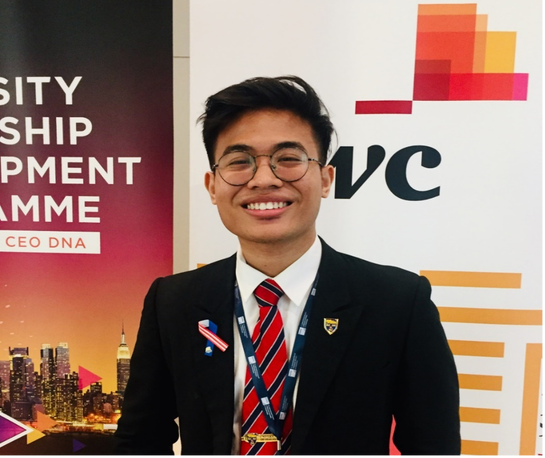
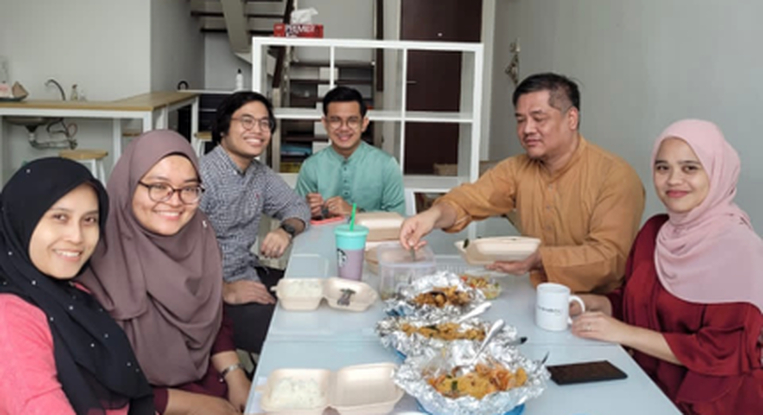
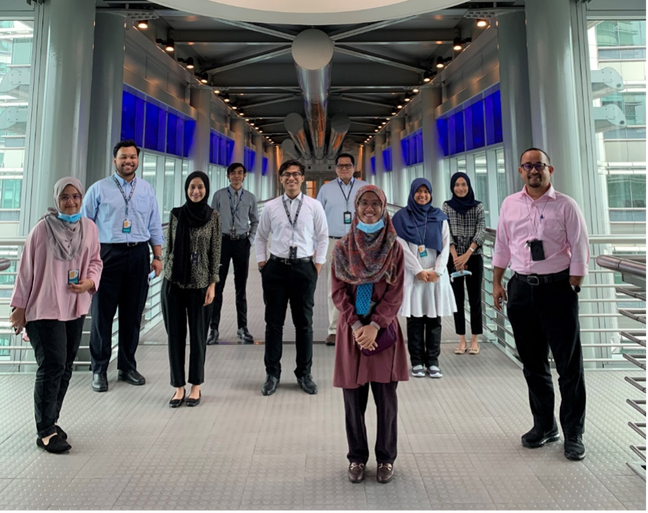
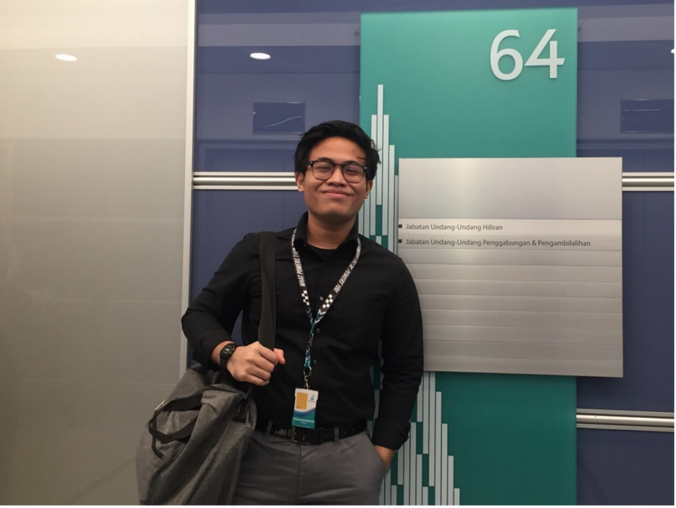
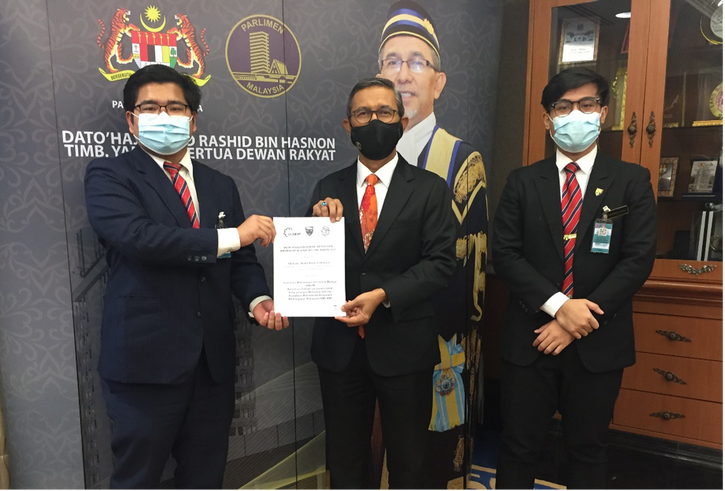
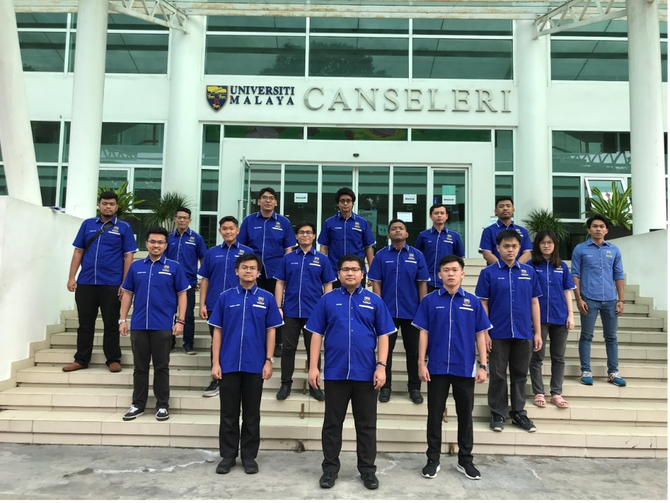
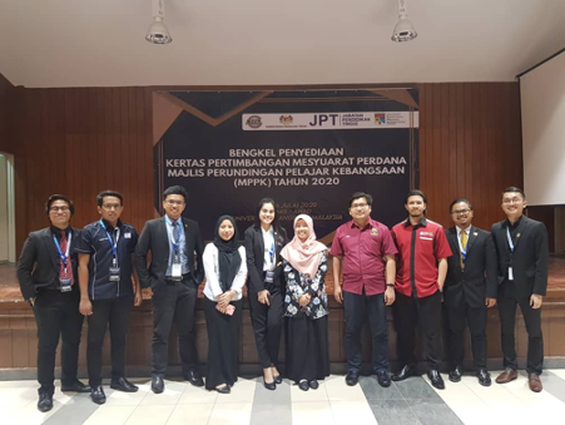
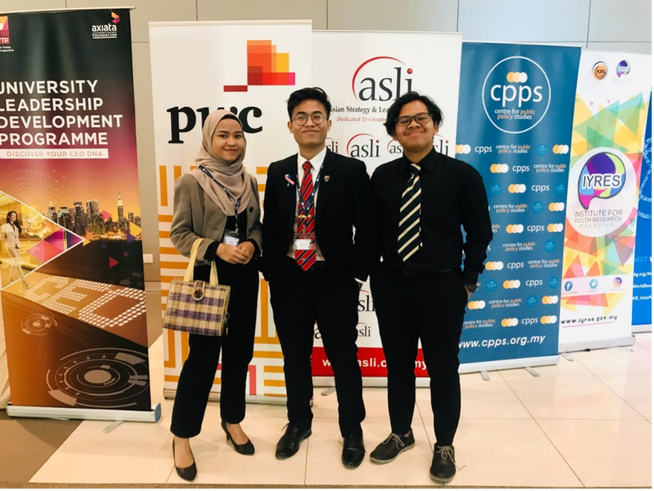
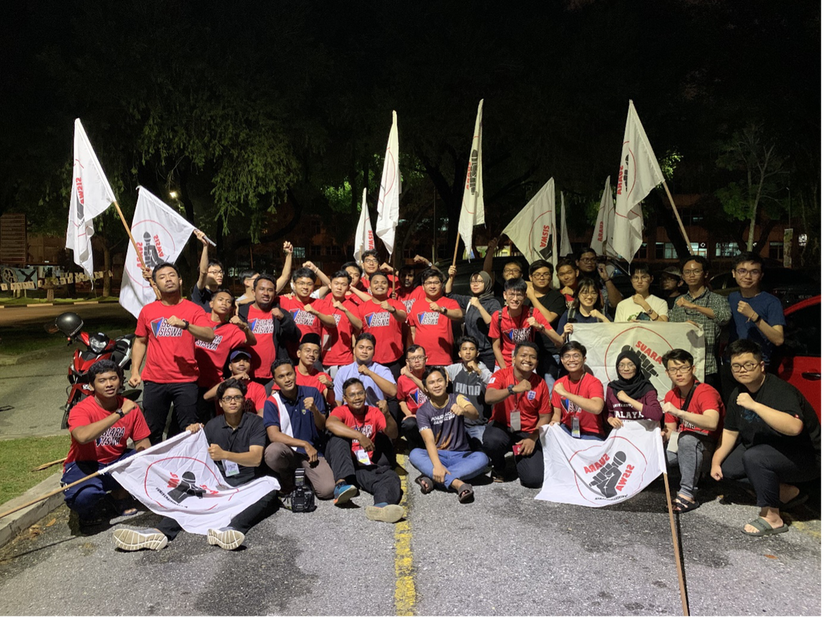
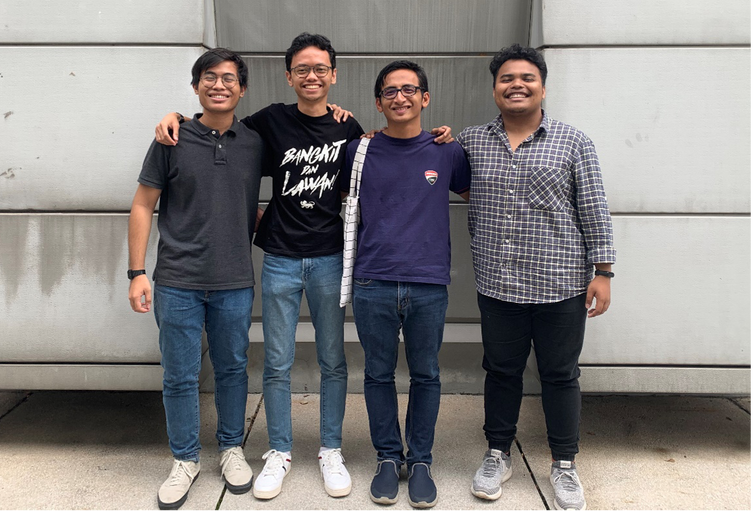
 RSS Feed
RSS Feed